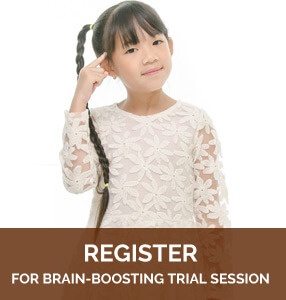Here’s Why Traditional Teaching Doesn’t Work For Your Child Anymore
Dear mummies and daddies,
Do you remember those carefree days where all we did was catch spiders and eat 20 cent mee rebus from the noodle uncle on the street?
Growing up then was much easier and expectations weren’t that high.
Studying was simple. All we had to worry about was just memorising and practicing over and over and over again. Or we’ll face the dreaded rattan!
This method of teaching is what we call rote learning. And this was the only way our parents knew how to teach us. And I think it was pretty similar to how their parents taught them as well.
To just memorise and drill. You don’t even need to really understand what you’re learning. Just regurgitate all that information when it’s time for exams.
Am I right?
The truth is…
When it comes to learning in the 21st century, school curriculum has shifted to a more comprehension model of learning where understanding and application is more important than raw memory work.
Rote learning does not focus on understanding and does not help with comprehension of a subject or topic. All that memory work has become less important and necessary in today’s education requirement.
And this is why we believe that the old-school method of rote learning will not help your child especially if he/she just started his/her primary school education.
What your child really needs is a good foundation on the ability to understand and learn well.
And what do we mean by that?
Your child requires the underlying brain skills that help him process, make sense of, and retain the information he learns while in school.
And the only way to achieve the right abilities is through…
Proper Cognitive/Brain Training
Brain training does for mental abilities what exercise does for the body. Through intensive brain exercises and activities, the brain can develop its underlying abilities that will help you learn more effectively.
These are some main functions of cognitive abilities that govern the way you use your brain.
They are:
1) Comprehension
2) Memory
3) Focus
4) Visual
These areas are not subjects that you learn in school. And your child is not automatically perfect at all of them. There are definitely areas that he may be strong in but definitely, areas that he may be very weak in too.
There is also a common misconception where parents believe that certain children are just “born smart“.
But in actual fact, these children are just born with superior cognitive abilities (without prior training). However, all children can go through specific brain training that can help him perform like a “gifted child”.

So now that you understand the importance of brain training a bit more and that you realise that rote learning (even though it is our only point of reference) is not effective and can be detrimental to your child’s learning, would you like to know how you can help develop your child’s cognitive abilities to maximise his/her potential?
“But Felicia, we didn’t go through brain training when we were young and we turned out fine!”
Well, I’m not doubting that you didn’t. I’m just saying with the demands of the 21st-century education, simple regurgitation of information during exams is just not enough to get that “A” grade anymore. Expectations are much higher and all our children are performing at a much higher rate.
And this is especially so in Singapore where our children are considered the top 3 smartest children in the world!
I mean have you actually tried helping them with their homework recently? Even questions from a primary 2 math textbook can make the smartest parents stumble and think for an extra minute before arriving at the answer.
With demands like this, our children need all the help they can get!
Here’s an example of a math problem straight out of a P2 textbook:
“329 people attended a concert on Friday night.
This was 97 more than the number of people who attended the previous night.
A total of 754 people attended the concert on Saturday and Sunday.
What was the final total attendance for the four nights of concert?“
The cognitive ability required here is called sequential thinking.
Your child first needs to understand the big picture of the question. Eg. How many sets of numbers were given? (Some children don’t even see that there are 4 nights in total.)
Then it’s knowing in which order do we use the information given to come to an answer?
And all this is beyond understanding addition and subtraction even though it’s still only a math question.
Without possessing strong sequential thinking ability, your child will not be able to complete this question even if he is good at calculating the answer. Rote learning will not help because the question can be mixed up and no 2 math question is ever the same, especially in problem sums.
I’m sure you would agree that the way you were taught by your parents back then wouldn’t give you the right skills to help solve problem sums like the one I shared above.
And this is just one example of why cognitive abilities are much more important for children in the current education system.
The great thing about it is that more and more parents are becoming more aware that their child requires specific brain training to help him in school. They are starting to understand that just extra tuition and assessment books do not help in the long run.
This is because they understand how extremely important these cognitive abilities are in the current education system, as compared to traditional rote learning and memory.
If this is something that you are interested to find out more…
Click the link to join us for a 1.5hrs hands-on Brain Boosting session to help your child maximise their Brain Potential!
Think about it…
Simple memory work is being taken over by machinery and other processes. To survive in the 21st century, we require critical thinking and problem-solving skills. That is what our education system is striving towards. Now it’s time to equip your child with the right skills to not only survive but be successful in the future.
Note: It is much easier (and definitely faster) to include cognitive development and training during a child’s earlier years… and I am sure you will agree that it is definitely much easier to teach children than to “fix” adults who have failed to succeed in school.
So while you still have the chance to strengthen your child’s learning foundation while he is young… give him the chance to improve his learning ability early by clicking the link to join us for a 1.5hrs hands-on Brain Boosting session NOW!










